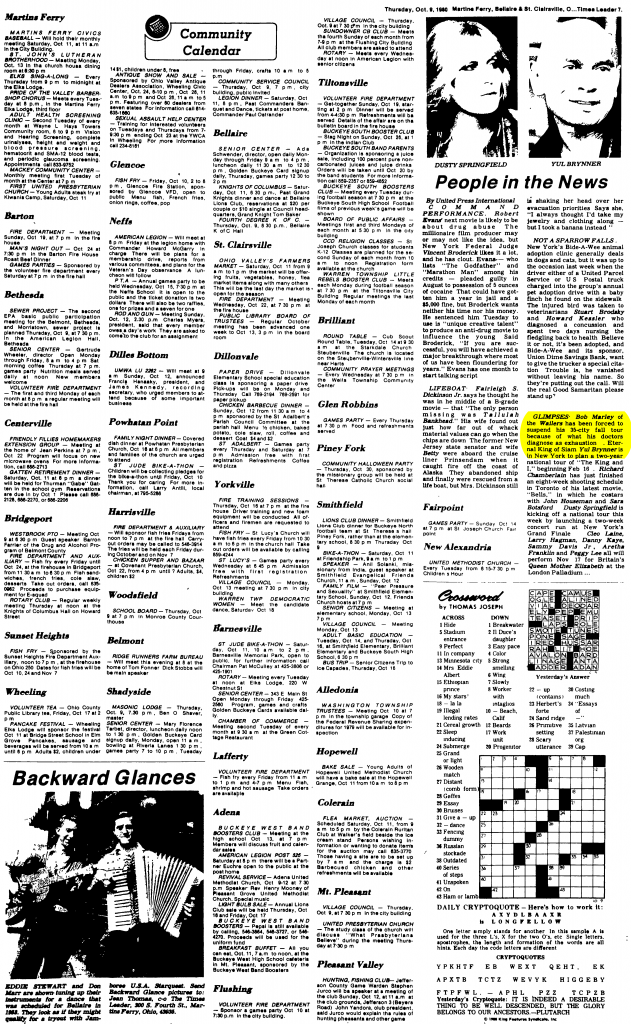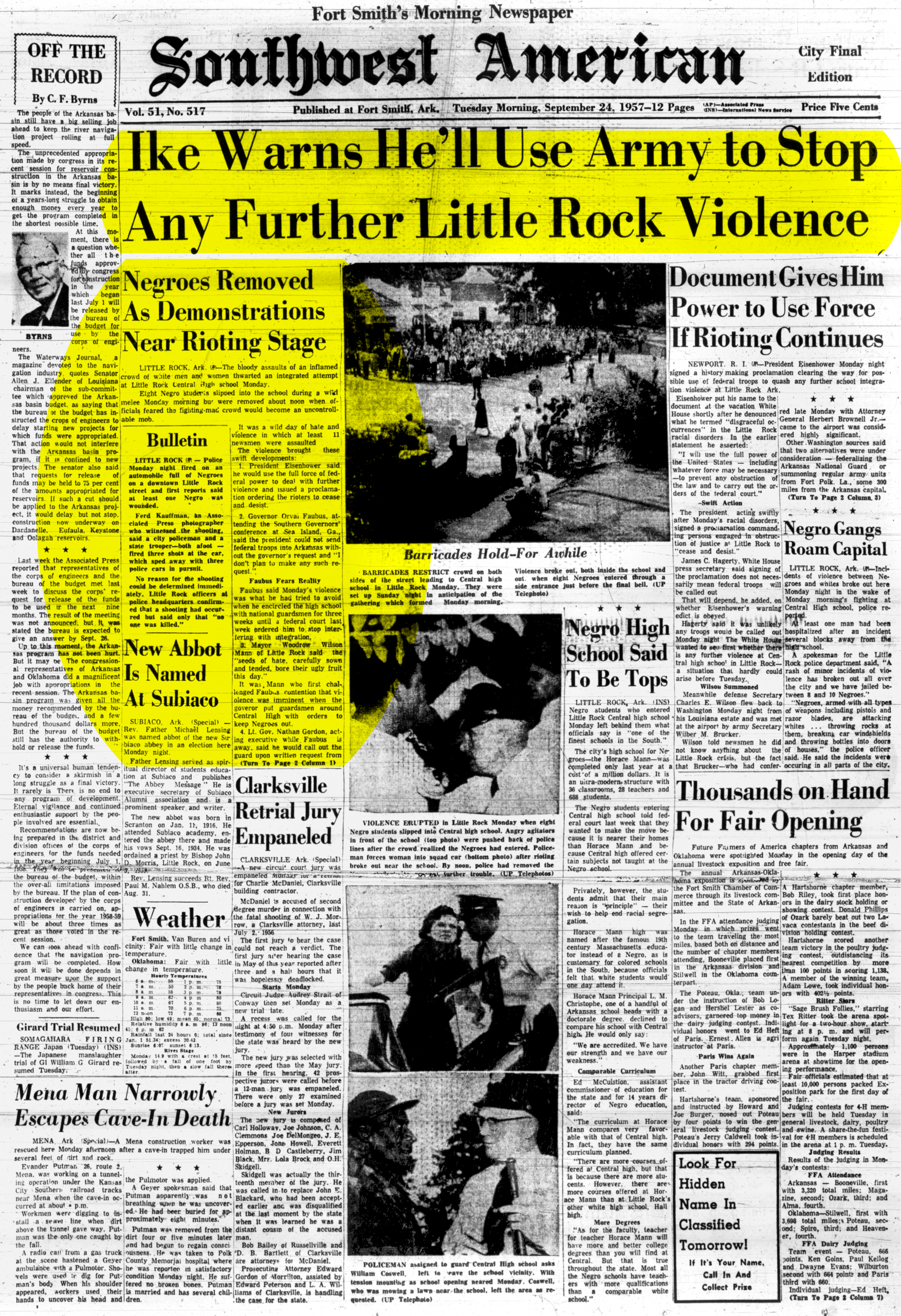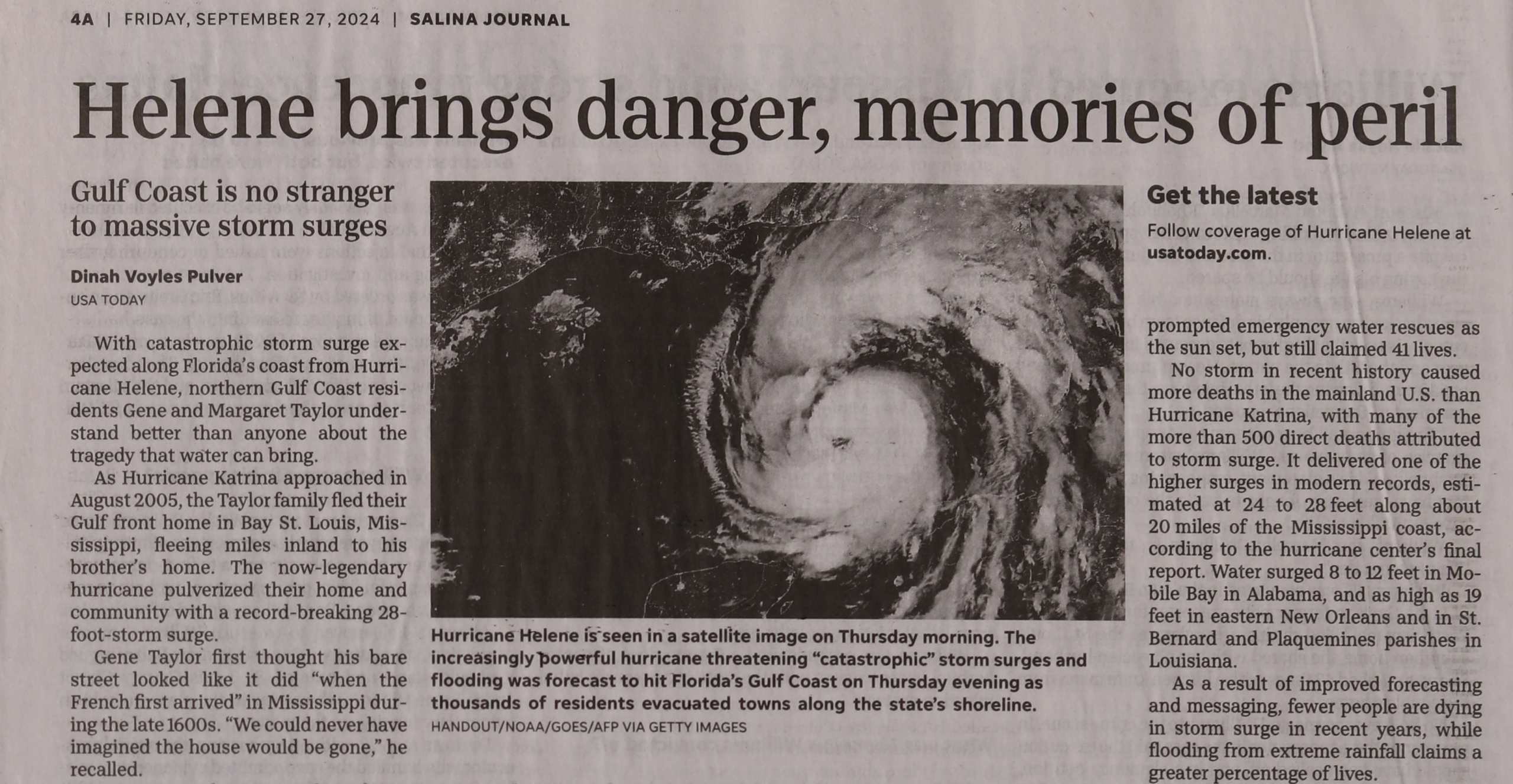Hurricane Helene made landfall in the Big Bend region of Florida on September 26th, 2024. The category four hurricane was the second major hurricane of the 2024 Atlantic season. With 252 fatalities, Helene was the deadliest hurricane to make landfall in the United States since Hurricane Katrina in 2005. Fears lingering from Katrina and other weather disasters made many take extra precautions. For example, in the Mountaineer published just days before Helene made landfall, they shared that a North Carolina town was making sure they were extra prepared, even though they weren’t projected to receive the worst of the storm. Business moved inventory, floodgates and sandbags were put in place, and locals were warned to be prepared.
In the Salina Journal, they shared reflections on the devastation Katrina brought as Gulf coasters prepared for Helene. Through all the articles, it was clear that the storm was to be big and catastrophic, and with new improvements in weather technology, they hoped for a better outcome than Katrina. While Helene caused over 70 billion dollars in damage, Katrina still takes first place for hurricane damage, doing over 150 billion dollars in damage. I think it’s safe to say that Katrina was a devastating lesson which helped Americans properly prepare for future hurricanes, such as Helene.

On September 23, 1980, reggae legend Bob Marley played his final show. Marley made a name for himself in the music world by introducing new crowds to reggae, a music style that was largely popular in Jamaica, where he was from. Performing with his band, The Wailers, the group sold out the Stanley Theatre in Pittsburgh. While Marley went up on stage and gave it his all, very few knew of the health struggles he was facing daily. He had been diagnosed with a rare form of melanoma stemming from an injury, and the cancer had continued to spread throughout his body. Before this final show, he had continued to feel worse and worse, even collapsing while on a run in New York. However, Marley felt committed to his band and the fans who were planning to see them, and was going to give everything he could to the performance. Those who were at the show recalled an incredible and transformative performance, especially moved by his acoustic encore. It was after this show that he was forced to cancel the rest of his tour stops with the wailers, as he was no longer well enough to perform. It is evident to me that no one truly knew for certain that his performance in Pittsburgh would be his last. Because of this, it was difficult to find any newspapers covering the concert. All I found was a mention of his tour suspension in the Times Leader, published October 9th, 1980, where they cited exhaustion as the reason. He passed away on May 12, 1981, from cancer, but his legacy in the music world lives on.
(1945 – 1980s) The Fight for Integration: Eisenhower Deploys Guard in Little Rock, 1957
The Little Rock Nine were a group of students who were tasked with integrating Little Rock’s Central High School for the first time. For almost the entirety of September 1957, the nine black students tried and failed to attend the otherwise entirely white high school. Angry crowds and even the National Guard prevented them from entering the building. In fact, earlier this month, we talked about the night before their first day, September 2nd, when the Arkansas governor ordered the state’s national guard to prevent the students from entering the building.
On September 24th, The Southwest American reported on President Eisenhower’s warning following the students’ half-day of attendance. The nine students were met at the front door with the usual violent mob, but managed to enter the school through a different door. However, the students had to leave around noon for fear that the mob outside would become uncontrollable and threaten their safety. Eisenhower declared that he would not hesitate to deploy the National Guard if integration continued to be halted. Arkansas Governor Faubus claimed that he would be in no such mood to deploy the National Guard; however, he incorrectly assumed that the president could not deploy them without his consent. At the same time, Little Rock Mayor Woodrow Mann publicly condemned the actions of the governor and pleaded with President Eisenhower to send aid.
Eisenhower followed through on his promises. That night, he deployed National Guard troops to Little Rock to ensure the integration of Little Rock Central High School the next day. On September 25th, the students could finally enter the building and attend classes, escorted by the national guard. From then on, they were able to attend classes regularly, but not without enduring horrific treatment from the other students. Daily, the Little Rock Nine were harassed and mistreated for nothing more than the color of their skin.
Nonetheless, they persisted and graduated from Little Rock Central High School. Their courage laid a path for black students everywhere and helped schools integrate all over the United States. Seven of the nine students in the group are still alive today. I think a lot of people my age (college students) don’t realize that the Jim Crow era really wasn’t that long ago. Some of these civil rights leaders are still alive. Ruby Bridges is young enough that she has an Instagram. It’s so important to keep telling these stories because if we don’t learn from history, it is bound to repeat itself.

The Munich Agreement was a settlement reached between Germany, Great Britain, Italy, and France, signed on September 30, 1938. This agreement arose from accelerating tensions regarding the control of the Sudetenland, a region of Czechoslovakia with a predominantly ethnic German population. Adolf Hitler believed that the Sudetenland should be annexed to Germany, but Czechoslovakia was opposed to this.
To address these tensions, a conference was held in Munich with representatives from Great Britain, Italy, and France, while Czechoslovakia was notably excluded from discussions about its own territory. Eager to avoid another war after World War I, Great Britain and France agreed to many of Hitler’s demands, ultimately permitting Germany to annex the Sudetenland. Though this was intended to be a peaceful resolution, the Lakeville Journal reported on October 27, 1938, that following the Munich Agreement, Great Britain and the other involved nations began to rapidly prepare their armies for war. It appeared they sensed that the conflict would not be resolved by this agreement. Hitler had claimed that the annexation of the Sudetenland would be his final territorial aspiration in Europe, but this was a deceptive assertion. He subsequently went on to occupy the entirety of Czechoslovakia, which contributed to the outbreak of World War II.
(1824 – 1914) Final Warning: Preliminary Emancipation Proclamation, 1862
The Emancipation Proclamation, famously signed by President Lincoln in the midst of the US Civil War, was signed into law on January 1st, 1863. However, that day was not the first time anyone had heard of the proclamation. In fact, on this week in 1862, the preliminary emancipation proclamation began to be printed in northern newspapers. The preliminary proclamation was, at its core, a warning to the South. Lincoln warned the states that had left the Union that if they did not rejoin, he would free all enslaved people in their populations, so long as they joined the rebellion against the Confederacy. All enslaved people in rebellion against the southern states, come January 1st, would be free. In essence, Lincoln redefined the goals of the Union and called to arms all enslaved people living in the southern states to join the Union cause. Despite being published nearly 163 years ago, I was able to find a copy of the preliminary Emancipation Proclamation in the Amesbury Community History Archives. The paper, published September 25th, 1962, includes a full transcription of the preliminary proclamation. This discovery is another fantastic example of how many cool resources you can access for free with our partners Community History Archives. I mean, how often do you get to look at famous historical documents fully contextualized from the comfort of your own home?
Join me again next week to discover more of history’s hidden gems and timeless tales.
Explore the “Read All About It” archives to read stories that spotlight our partners and their communities, announcements from our team, updates on current projects, and so much more. Discover articles about engagement, outreach, primary sources, community, digitization, education, and other topics of interest. Delve into the happenings in this week in history and take a deep dive into the events and people who helped shape our communities, our nation, and the world.
Hear Ye, Hear Ye, READ ALL ABOUT IT!
Advantage Archives works to build strong, community-based partnerships to provide free online access to local history, making it discoverable and easily accessible to anyone, anywhere, at any time, on any device. This allows communities to understand and connect to their past in a meaningful way. Through the Community History Archive search platform, we provide the community with the means to explore, discover, learn from, connect with, and share the stories of the people, places, and events that shaped their community.
The Community History Archives are intended to serve as a “portal to the past”, allowing local primary source documents to give an accounting of history as told by the individuals that witnessed it. Advantage Archives guiding principals center around building strong community-based partnerships, which is why we enter into them with the intent of shouldering our fair share, and taking the burden off of the community for the ongoing costs associated with storage, hosting, development, and maintenance of the Community’s History Archive. We are an active participant in the community’s efforts to make their collective history more accessible. The Community History Archives are maintained for free by Advantage and do not require a subscription, seat license, annual support contract, or any other ongoing costs or expenses to the institution or members of the community.
If you would like to see more local history online, please contact your local library, newspaper publisher, genealogical society, historical society, or educational institution, and encourage them to learn more about creating a Community History Archive or have them contact Advantage Archives at (855) 303-2727



